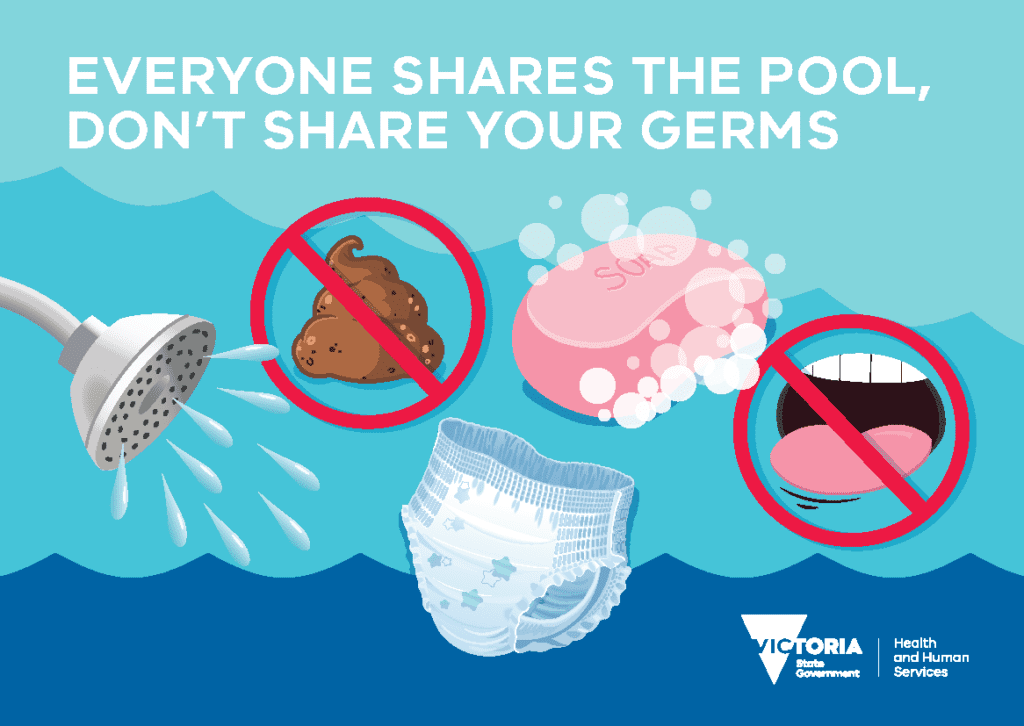
As a precautionary measure based on the confirmed outbreak of Cryptosporidium (crypto), we will temporarily be closing the Warm Water Pool for a brief period while we complete a hyperchlorination process. The closure will begin at 3:30pm on the 7th of March and conclude the afternoon of the 8th March.
The indoor and outdoor splash pads have also been closed temporarily and are due to reopen morning of the 8th March.
As a precautionary measure based on the confirmed outbreak of Cryptosporidium (crypto) in the Learn to Swim Pool, we will temporarily be closing the 25M and 50M pools for a brief period while we complete a hyperchlorination process. The closure will begin at 9:30pm on the 5th of March and conclude the next morning.
We recently conducted a hyperchlorination process in the Learn To Swim (LTS) pool on the 29th of February 2024. The LTS pool is safe for swimming in meaning lessons in this pool will not be affected by the closure on the 6th March.
As a precaution Northcote Aquatic and Recreation Centre is treating these pools to ensure if any germs are present that they are destroyed so visitors are safe to swim in our facility.
Cryptosporidium (crypto) is a germ. If a person with crypto swims in a pool, the water may become contaminated with the germ. Once the water is contaminated, other swimmers can catch the germ by swallowing pool water. Crypto usually causes watery diarrhoea, along with stomach cramps, bloating, vomiting, and fever.
Northcote Aquatic & Recreation Centre has water treatment measures in place at all times to protect pool users from germs and debris. However, crypto germs often survive normal levels of pool chlorine and can remain in pool water despite optimal, routine water disinfection measures.
Northcote Aquatic and Recreation Centre is working with Darebin Council and the Department of Health and Human Services to manage the presence of Cryptosporidium in the pool that was identified to have traces of Cryptosporidium.
Even tiny amounts of Cryptosporidium in the water can make you sick, so the facility is closed to clean the pool.
Northcote Aquatic and Recreation Centre has taken this action to protect your health and to stop the spread of germs.
Cryptosporidium is a tough germ that can be spread when recently infected swimmers contaminate the water with tiny amounts of the germ present on their body.
Cryptosporidium lives in the bowel and is found in the faeces (poo) of infected people. The germ is normally spread through poor hygiene (such as not washing), usually ingesting contaminated foods or water.
Cryptosporidium is highly contagious. One person infected with Cryptosporidium can pass enough germs in a single visit to contaminate a large swimming pool. The germs are highly resistant to chlorine, the usual form of pool disinfection. Up to 50,000,000 of the germ can be found in a single millilitre of faeces. Swallowing as few as two of the germs can lead to infection.
Go to the Better Health Channel to find out more about healthy swimming actions you can take to help keep the pool clean.
Cryptosporidiosis (‘crypto’) is the disease caused by the germ Cryptosporidium. Possible sources of contamination include someone who has recently had the illness, domestic animals such as pets, and farm animals such as cattle. Outbreaks of crypto from pools happen when swimmers accidentally swallow pool water contaminated with the germ.
The symptoms of crypto are usually mild, but illness can be more severe for people with low immunity, in children and pregnant women. After infection, it can take one to 12 days (on average seven days) before you become ill.
Symptoms may include:
The symptoms usually last for about two weeks. People with low immunity may be sick for longer. An infected person can continue to shed the parasite in their faeces for at least two weeks after feeling better and the diarrhoea has stopped.
To prevent further spread of crypto, it is important for any swimmers who have had crypto not to swim for two weeks after the diarrhoea stops. There is no treatment for crypto. Speak to your doctor for medical advice.
Go to the Better Health Channel to find out more about crypto.
When someone has a confirmed case of cryptosporidiosis, the person’s doctor must notify the Department of Health. A departmental or local government health officer may contact the patient to find out where they may have picked up the bug. If cases can be linked to a swimming pool, the facility management are notified immediately and begin to take action to prevent the further spread of germs.
Cryptosporidium is a tough germ that can be spread when recently infected swimmers contaminate the water with tiny amounts of the germ present on their body. One person infected with crypto can pass enough germs in a single visit to contaminate a large swimming pool. That is why we are taking action to close the pool and to treat the water – to ensure no one else gets sick.
Go to the Better Health Channel to find out more about swimming pools and water quality.
If you think you or your child may have cryptosporidiosis, contact your doctor. The doctor will ask you for a stool (faeces or poo) sample for testing. If the results of the tests show that you have cryptosporidiosis, the doctor will be able to provide you with advice and will also notify the Department of Health and Human Services.
Please let our aquatics management know if you become aware of faeces in our pool or if you become ill after swimming at our facility.
Find out more about crypto on the Better Health Channel.
If you think you or your child may have cryptosporidiosis, contact your doctor. The doctor will ask you for a stool (faeces or poo) sample for testing. If the results of the tests show that you have cryptosporidiosis, the doctor will be able to provide you with advice and will also notify the Department of Health and Human Services.
Please let our aquatics management know if you become aware of faeces in our pool or if you become ill after swimming at our facility.
Find out more about crypto on the Better Health Channel.
Unfortunately, people with crypto infection can remain infectious for up to 14 days after their symptoms finish. The normal rule of not to swim if you have diarrhoea does not fully protect our pools from crypto infection, you have to stay away from swimming in pools for 14 days after symptoms finish if you have had crypto.
We advise all pool users that if you have any symptoms of gastro, this could be a sign of crypto infection and you should consider seeing your doctor for a simple stool test. If you recently had diarrhoea, you should not swim until 14 days have passed since your last symptoms, because you might have crypto and not realise.
Yes, the pools are safe for swimming in once the process has been completed. The hyperchlorination process is proven to inactivate Cryptosporidium germs. As a precaution Northcote Aquatic and Recreation Centre is treating these pools to ensure if any germs are present that they are destroyed so visitors are safe to swim in our facility.
We are all responsible for keeping our pools clean and free from germs that can cause illness and pool closures. Go to the Better Health Channel to find out more about healthy swimming actions you can take to help keep the pool clean.
Northcote Aquatic and Recreation Centre closed its Learn to Swim pool to the public on 29 February to prevent the spread of germs to visitors and treat the water using a hyperchlorination process. We are also closing the indoor 25M and outdoor 50M pools to the public on 5th February at 9:30pm (until the following morning) as a preventative measure to complete hyperchlorination on these pools as well.
The hyperchlorination process is proven to inactivate Cryptosporidium germs. As a precaution Northcote is treating these pools identified within the Centre to ensure if any germs are present that they are destroyed so visitors are safe to swim in our facility.
We are all responsible for keeping our pools clean and free from germs that can cause illness and pool closures. Go to the Better Health Channel to find out more about healthy swimming actions you can take to help keep the pool clean.
As a precaution Northcote Aquatic and Recreation Centre is additionally treating these pools to ensure if any germs are present that they are destroyed so visitors are safe to swim in our facility.
We are all responsible for keeping our pools clean and free from germs that can cause illness and pool closures. Go to the Better Health Channel to find out more about healthy swimming actions you can take to help keep the pool clean.
Germs such as bacteria, viruses and parasites may enter swimming pools when contaminants are brought into the water. You share the pool water with others, and practicing good hygiene before going swimming can prevent germs on swimmers’ bodies from contaminating pool water.
Most pools have treatment systems in place to kill germs. Depending on the type of germ and how long it takes for the germ to be killed, sometimes visitors can get sick when they come in contact or swallow small amounts of contaminated water.
Chlorine is able to kill most germs, but it doesn’t happen straight away. Some germs such as Cryptosporidium can live in pool water for days. Without your help, even the best maintained pools can spread germs.
Go to the Better Health Channel to find out more about healthy swimming actions you can take to help keep the pool clean.
How to protect our pools and stay healthy while swimming

https://www.betterhealth.vic.gov.au/health/healthyliving/swimming-keeping-the-water-clean
